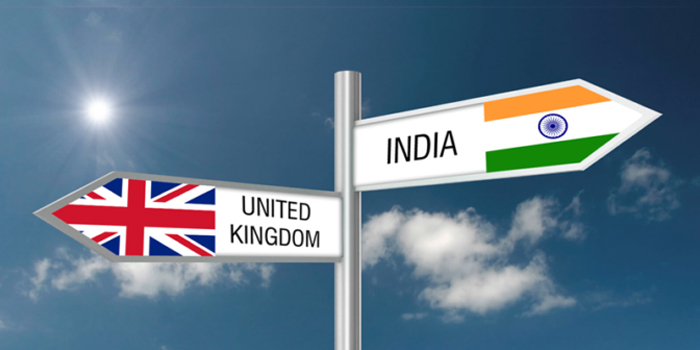
UK-India business boosted by prospect of trade deal : HSBC
LONDON : Business between the UK and India has boomed this year as firms in both countries anticipate their governments will be able to seal a free trade agreement, HSBC Holdings Plc data showed.
In the nine months to October, HSBC’s UK unit received 36% more business client referrals from its arm in India than a year earlier, data from the bank showed on Monday. That includes Indian clients who want to set up a company in the UK, establish a subsidiary or make an acquisition. Payments received from India by UK clients climbed by 121%, with a 32% rise in flows in the opposite direction.
The positive snapshot from the only UK bank to have a significant presence in both markets comes as the two nations prepare to relaunch negotiations on a free trade agreement in January. Talks which then-Prime Minister Boris Johnson hoped would conclude by Diwali in October 2022 are still dragging on more than two years and three British premiers later, and have been on hold since the UK’s July 4 general election.
While a deal is still far from nailed on, Prime Minister Keir Starmer — who ousted Rishi Sunak’s Conservatives in July — will welcome the rise in Indian interest in the UK indicated by HSBC’s figures. The premier has sought to market the UK as an attractive place for overseas capital, holding a high-profile international investment summit in October as he pledges to fire up growth.
The bank’s growth in business between India and the UK has been driven in part by the “massive” potential for a trade deal between the two nations, according to Cora McLaren, HSBC UK’s head of international subsidiary banking. She said that even absent a deal, the ongoing commitment of the two countries to securing one after 14 rounds of talks boosts confidence in bilateral trade.
“The free trade agreement is being talked about, when I speak to clients — their interest is in how does it relate to them,” McLaren said in an interview. “Anything that gives certainty to businesses around the future outlook is helpful because in making decisions, one of the enemies is uncertainty or volatility.”
Trade between the UK and India totaled £42 billion ($53 billion) in the 12 months through June, with UK exports to India worth £16.6 billion, according to official figures. When the last round of FTA talks closed in August, people familiar with the matter said there were still hurdles to be overcome in goods, services and investment areas.
India has more protectionist policies than Britain, imposing an import tariff on Scotch whisky of 150%, for example. During his previous presidential term, Donald Trump called India the “king” of tariffs, but with the US president-elect now threatening his own levies of up to 20% on all goods imported to the US — Britain’s biggest individual trading partner — it’s becoming increasingly important for the UK to broaden trade with other nations.
McLaren said that concluding a trade deal would encourage British companies to search out opportunities in India that could ultimately help the UK reach its growth targets: Starmer is aiming for the UK to have the highest sustained rate of growth in the G7.
In terms of British firms, broadening customer bases abroad could bring more activity to production facilities in the UK, while building new premises in India could help create jobs as many firms will initially take UK workers to lend their expertise, McLaren said.
She also said that Indian clients appreciate the UK’s pool of talent and political stability and that even after Brexit, some see Britain as a pathway into the larger market of the European Union. India has also been holding separate trade negotiations with the bloc, but progress has been sluggish. Promises by Starmer to form closer ties with the EU post-Brexit have piqued the interest of clients in India.
“We still see strong trading between the UK and EU and indeed it’s been a priority for the government to open up those conversations more at pace,” McLaren said. That “sells the UK as being open for business, which is really positive.”
She nevertheless warned against complacency in attracting Indian investment, saying: “If we think we’re not in competition, we are kidding ourselves. Of course it’s a competition because large corporates overseas have a real choice in where they want to invest.”
